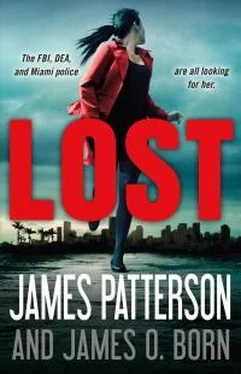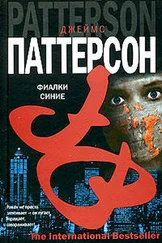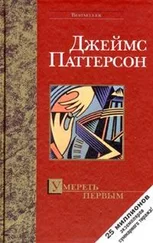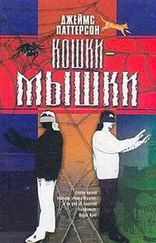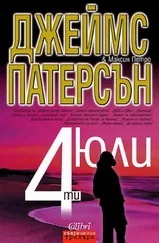It seemed like every third building was some sort of museum. When they talked history in Amsterdam, the topics were events that had occurred before the U.S. was a going concern. In South Florida, history meant the Cuban migration or Jackie Gleason living there in the seventies.
It wasn’t all sightseeing; there was a purpose behind it. Marie explained how the city was laid out and told me where different crimes were most common. She also showed me potential safe houses for the Russian mob. At one point, we stopped by a building next to a canal.
Marie said, “These apartments are often used to house people before they’re smuggled to their next destination. There’s going to be an operation to make some arrests tonight. I wanted to bring you so you can see what it’s like. There are some legal prostitution houses in this block as well,” she added.
I was genuinely curious. “Did you find that legalizing prostitution had much of an effect on crime?”
“There’s never an easy answer to things like that. Even if you legalize something, there’s still a black market. People think that decriminalization eliminates black markets, but those are people who don’t experience life on the streets. For customers who want to avoid taxes or identification, there’s always a market that the government can’t control. Legalizing prostitution has made Amsterdam a destination for desperate people, and that provides an avenue for human traffickers. They convince runaways or young people with drug problems that if they can just get to somewhere else, everything will be all right. It’s basically the same scam every criminal has used for the past two hundred years.”
In the early evening we stopped at a café. I’d expected to throw down half a gallon of coffee to perk up, but as soon as we settled into a small table in the corner, I realized this was no ordinary café. This was one of the coffeehouses Amsterdam was famous for, the kind where they served pot along with coffee.
It was not dark or dank. The different strains of marijuana were proudly displayed in glass containers. The conversations in the small coffeehouse were muted and private. A light shone on a poster of the Rolling Stones at Altamont. Except for the odor of pot in the air, it could’ve been any hipster hangout in the States. Commercial cigarettes and alcohol were both strictly forbidden in the coffeehouse.
When I told Marie I knew what was up, she gave me a sly smile. “It’s completely legal here. At least, inside a place like this.”
I glanced around at people enjoying pot-infused pastries or smoking joints or hookahs.
Marie said, “Would you like to try marijuana legally?”
“Just because it’s legal here doesn’t mean I’m allowed to try it.”
Marie said, “Have you ever tried pot?”
I laughed. “I went to the University of Miami. Of course I’ve tried it.”
She ordered in Dutch. Before long, I had a cup of coffee and a lovely-looking pastry in front of me. Marie had the same. She also had a single, perfectly rolled joint.
I said, “Knocking off early today, are we?”
“No. Just breaking all kinds of rules.”
I watched as she lit the joint with a plastic lighter and took a single puff. She handed it to me. I thought about it for a moment, then copied her single, light puff. If it was a test, I’d passed it. She put out the joint by crushing it under the edge of her coffee cup.
Marie said, “I was hoping you weren’t one of those by-the-book cops who are so insufferable.”
I let out a laugh and said, “I can be insufferable even while breaking the rules.”
We chatted about differences between the U.S. and Europe. It was as nice an evening as I’d had in years. The pot seemed to hit me in waves. At first, it was just some ringing in my ears, but before I knew it, I felt the full effects.
This shit was so much stronger than anything I’d ever tried in college. Of course, I hadn’t smoked a lot back then, and the few times I had, it was to fit in or impress a girl.
I guess things hadn’t changed much.
Marie asked me about the task force and I felt like I was slurring my words as I told her about it. Finally, I said, “No one realizes that Interpol is basically a series of databases with no real arrest powers.”
“Isn’t it funny how people assume they know all about police work from movies?” Marie said. “My father always asks me if I have a CSI team with me. He watches reruns of the American show.”
“I get that all the time. Especially with my size, people assume I’m duking it out with bad guys every day.”
Marie laughed. “It’s true that much of our view of Miami police work comes from reruns of Miami Vice .”
“It’s a good show, but it’s about as realistic as Game of Thrones .”
“Another favorite. I prefer a good fantasy to some of the horror we have to face in real life.”
I raised my coffee cup and said, “Amen, sister.”
It might have been the pot, but we both laughed for a really long time.
Chapter 27
HANNA GREETE LOOKED across the small table at the two men she’d been chatting with for the past half hour. The older of the two men, Alexi, worked directly for Emile Rostoff. She said, “Can’t you talk to someone on my behalf?”
Her overriding feeling was relief that she had not brought Albert with her.
Alexi acted as if he was trying to help her. But she knew that, with the Russians, it was all about business. They wanted her to pay them back, and she couldn’t pay them back if they killed her. That’s why she’d left Albert at home with Josie. Her brother would have stirred up even more trouble. He didn’t handle threats well.
Alexi said, “We’re not a bank. You can’t pay in tiny installments. You owe us almost five hundred thousand euros. We want at least half in the next month.”
“Five hundred thousand? That’s crazy. We borrowed three hundred thousand less than six months ago.”
“Money is a commodity. Right now, the value of money is up.”
“Not according to the European Union or any reasonable banks. Their interest rates are all hovering around one percent.”
Alexi was not impressed with that reasoning. “You are most welcome to take out a loan to pay us back. One of the advantages would be that banks aren’t going to break your leg or follow your daughter home from school if you miss a payment. Why don’t you try for a loan?”
That comment made the younger man with Alexi snicker. He was clearly Alexi’s answer to Albert—in his thirties, tall, well built, unshaven. He looked like a movie thug.
Hanna said, “No, I don’t think I’ll get a loan from a bank. I have some money coming in soon and I’ll use it all to pay you off.”
Alexi sat back and smiled. He had scars on his face that seemed to brighten when he smiled. They were like a map of his professional life. He had clearly been an enforcer when he was younger, and now he ran the operation for Rostoff out of the Noord District. Of course, Emile Rostoff ran the whole city. No one dealt directly with Emile, but if you did something to displease him, the results were almost always disastrous.
Alexi said, “Everyone knows about the diamonds you bought. We’d be willing to cancel a hundred thousand of your debt for five nice diamonds. We don’t care where they came from.”
Hanna had to be careful about how she played this. “If, hypothetically, I had any diamonds, they would be worth the full five hundred thousand.” She knew her estimate was about right, and she would jump at the opportunity if Alexi agreed.
Instead, he shook his head and said, “I don’t deal in hypotheticals. And I don’t pay retail for diamonds. I hope your next load goes better for you so we can get paid. Mr. Rostoff’s man in Miami will help set everyone up with jobs. That will go a long way toward paying down your debt. But you’re going to have to do more. We are starting to lose patience.”
Читать дальше
